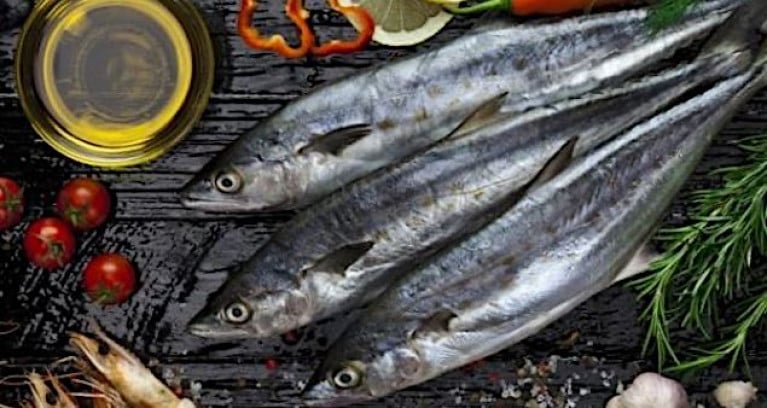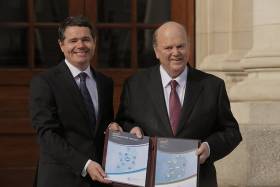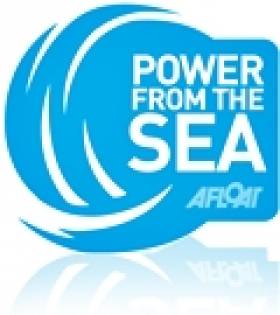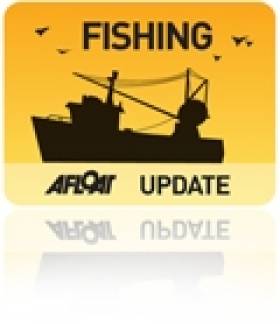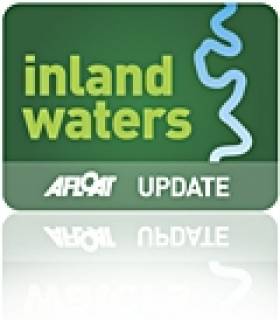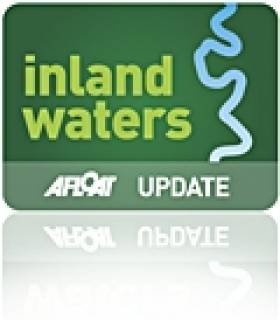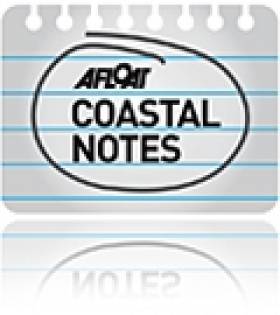Displaying items by tag: Budget
€151 million Seafood Programme Allocation in Budget 2021
The Government has allocated €13 million in increased funding to promote the” environmentally sustainable development” of the seafood industry.
Budget 2021 has approved total funding for the Irish sea fisheries Programme at €151 million.
Minister for Marine Charlie McConalogue welcomed the allocation, and said the fisheries, aquaculture and wider seafood sector “supports some 16,000 direct and indirect jobs in the coastal communities”.
Mr McConalogue also said the 2021 budgetary provision would allow the Marine Institute to progress the construction of a new €25 million modern research vessel.
The new 50-metre research ship – to replace the existing 31-metre Celtic Voyager which is over 21 years old – is being built in Spain, and will complement the existing 65 metre-long Celtic Explorer when it arrives around 2021.
Finance minister Paschal Donohoe has also approved additional funding for the development of fisheries harbours.
Coastguard funding
As Afloat reported earlier, some €108 million of funding will be invested in maritime transport and safety to ensure that the Irish Coast Guard can operate safely and effectively.
The building programme for the Irish Coast Guard is to be “ramped up”, with increased investment in safety-related training, equipment and systems.
Offshore islands
Some €2 million in additional funding for Irish islands has also been welcomed by Minister for Rural and Community Development Heather Humphreys.
The allocation for the offshore islands forms part of a 23 million euro “additional” investment in rural communities, she said.
The €3.4 billion recovery fund for an economy threatened by Covid-19 and Brexit includes up to €5,000 a week for businesses forced to close by Covid restrictions.
Payments will be made to businesses based on 10% of their first €1 million of turnover and 5% thereafter, subject to a maximum €5,000 for businesses which can demonstrate that their businesses have been impacted.
Mr Donohoe said this measure aimed to try and keep businesses afloat over the coming months.
Budget Provision for New Marine Institute Research Vessel
In the budget, Marine Minister Michael Creed has made provision for the Department’s Seafood Programme to increase by €5 million, to a total of €137.8 million.
The provision, says Creed, will help fund vital investment in our fishery harbours, most particularly in Killybegs, Howth and Castletownbere.
The budget provision will allow the Marine Institute to progress the construction of a new €50 million modern research vessel. This will provide critical national infrastructure to enable Ireland to address the considerable challenges of Brexit and the Common Fisheries Policy as well as climate-induced impacts on our oceans.
Income Tax Credit for Fishermen in Budget 2017
While cuts to USC, pension increases and a Public Sector pay rise are among the main components of Budget 2017 anounced today, the Marine Sector came in for special mention with a new income tax credit that recognises the difficult nature of work in the fishing sector.
Minister for Finance Michael Noonan & Minister for Public Expenditure Paschal Donohoe delivered Budget 2017 in the Dail today.
Following on from a recommendation made in the marine tax review completed last year, the government says it aims to assist the viability of the commercial fishing sector and at attracting and retaining staff.
The €1,270 annual credit will shelter income of up to €6,350, which is the equivalent value of the seafarers exemption.
There was €121.5 million in the Budget for Fisheries, fishery harbours and marine related Non-Commercial State Sponsored Bodies (NCSSBs) such as the Marine Institute, Bord Iascaigh Mhara and the Sea Fisheries Protection Agency – €43.6m of this is for the Seafood Development Programme.
Outlining these incentives the Minister for the Marine Michael Creed said “I am keen to acknowledge the commitment and hard work of fishermen and the contribution they make to the development of our Blue Economy. It is vital for the development of this sector to maintain employment and attract new entrants to the sector. Therefore, I am pleased to confirm an annual tax credit specifically for fishermen of €1,270. Furthermore I welcome changes to ‘Fish Assist’ including a €5 weekly increase and increased eligibility criteria.”
The €241m European Maritime and Fisheries Fund Operational Programme, launched in January 2016, will be further rolled out in 2017 with an increased total budget in 2017 of €43m made available across the Marine Department and its agencies.”
Budget Allocates €10 million To Ocean Energy Research
#budget – In today's budget €10 million has been allocated next year to ocean energy research, development and demonstration, following the publication of the Offshore Renewable Energy Development Plan earlier this year.
This funding will facilitate the development of the Atlantic Marine Energy Test Site off Annagh Point in County Mayo; ongoing activity at the Galway and Mayo Test Sites; and the co-funding of the in Ringaskiddy, County Cork.
The funding will also allow for the continued operation by the Sustainable Energy Authority of Ireland of the Prototype Development Fund, the main focus of which is on stimulating industry-led projects for the development and deployment of ocean energy devices and systems.
Budget Dishes Up €11.5m For Fishery Harbour Works
#budget2014 – The Minister for Agriculture, Food and the Marine Simon Coveney TD today announced details of his Department's 2015 budget. Emphasising that despite the fragile recovery in the economy, he had secured an increase in funding for the first time since 2009. Included in the funding of the Marine sector is the sum of €11.5 million devoted to the new seafood development programme 2015, while a further €11.5 million of capital funding will be invested in fishery harbour capital works, which not only adds value and improvement to these harbours but also contributes heavily to the local economies of the areas concerned. Some €6.3 million is allocated to investments in aquaculture and fish processing projects, while close to €47million is allocated to fund the marketing and development functions of BIM, the research role of the Marine Institute and the regulatory and control functions of the Seafood Protection Authority.
Inland Waterways Funding 'Will Deliver Core Targets' Despite Budget Cuts
#Waterways - The Department of Arts, Heritage and the Gaeltacht faces a whopping 7% cut in this week's Budget - but Minister Jimmy Deenihan promises Ireland's inland waterways will get the money they need to deliver "core targets".
In his departmental statement following the announcement of Tuesday's Budget for 2014, the minister confirmed that over €38 million will be allocated for North-South co-operation - which includes support for Waterways Ireland.
"I am committed to developing North-South co-operation within the broader arts, heritage and commemorative activities of the department as well as through the funding of North-South bodies," said Minister Deenihan.
"A provision of €38.3 million will be made available to support the two North-South implementation bodies, An Foras Teanga, comprising Foras na Gaeilge and the Ulster-Scots Agency, and Waterways Ireland.
"The provision will enable Waterways Ireland to deliver on its core activities and targets, which include keeping the waterways open for navigation during the main boating season and promoting increased use of the waterways resource for recreational purposes."
He added: "This expenditure should also assist in developing and promoting the waterways, attracting increased numbers of overseas visitors and stimulating business and regeneration in these areas."
In addition, the minister said "capital funding of almost €4 million will be made available to Waterways Ireland to facilitate the ongoing maintenance and restoration of Ireland's inland waterways, thereby increasing recreational access along the routes of waterways."
Meanwhile, Minister Deenihan confirmed that the lifting rail bridge over the Royal Canal below Newcomen Bridge will not be replaced with a drop lock.
The minister was responding to a Dáil question from Dublin Central independent TD Maureen O'Sullivan, who described the current facility - which requires canal users to contact Waterways Ireland a minimum of two weeks ahead of passage from the Docklands to the Royal Canal and vice versa - as "hostile" and "an impediment and discouragement to navigation on the Royal Canal".
However, the minister replied that "the option of introducing a drop lock to replace the need of the lifting bridge has been considered but not deemed viable due to the cost estimate involved."
The bridge was procured and installed by Waterways Ireland's predecessor body and is operated by Irish Rail on a request basis at the expense of Waterways Ireland.
#Budget14 - Ireland's marine sector receives an increased capital allocation of €10 million, while the Marine Institute and Bord Iascaigh Mhara (BIM) will each get a funding boost for 2014, as details of the latest Budget emerged yesterday (15 October).
Marine Minister Simon Coveney announced the €10 million allocation "to maintain the infrastructure at the [Department of Agriculture, Fisheries and Marine's] fishery harbour centres and local authority fishery harbours which makes and valuable contribution to Ireland's marine sector," according to a department statement.
Similarly, the capital allocation to the Marine Institute "is being increased to €10 million to cover the cost of its ongoing research programme as well as upgrading its research vessels", while BIM receives €6.5 million "to assist the implementation of the revised Common Fisheries Policy".
There was also some good news in the Budget for businesses in the angling and aquatic tourism sectors, the retention of the 9% VAT rate for the hospitality sector, as well as a cutting of the Travel Tax to 0% as an incentive to boost visitor numbers on the back of this year's Gathering initiative.
In addition, €8 million in funding has been allocated for developing the Wild Atlantic Way, which Tourism Minister Michael Ring says will "ensure that this new west coast route lives up to international expectations".
Sports funding, however, took another hit - with the Irish Sports Council set to receive some €3.1 million less next year than in 2013. The Score has more details on the funding cut, which effectively rolls back State expenditure on Irish sport to 2006 levels.
It is as yet unclear which sports will be fare worst from the reduction - although community sports clubs nationwide are expected to receive new funding for essential works such as changing rooms and lighting via a new round of the Capital Sports Programme.
Bridge Report Could Herald New Corrib Crossing for Galway
#RIVER CORRIB - A consultant’s report on Wolfe Tone Bridge in Galway could clear the way for a new crossing of the River Corrib, according to The Connacht Sentinel.
Galway City Council has confirmed that the €400,000 report will look at the possibility of a new bridge for vehicular traffic downstream of the existing span.
“Given the age of the current structure, we have to look at plans for the construction of a new bridge and the retention of the existing crossing as part of a walkway over the Corrib," said the council's director of services Ciarán Hayes.
“There is no doubt that such a walkway, as part as an overall regeneration plan for the area, would be a most welcome addition to the amenity infrastructure of this historic part of the city."
The €400,000 allocation for the report commission will comes from the National Roads Authority and Department of the Environment budget for regional and local roads in 2012. The report is expected to be carried out later this year.
Coveney Underlines Importance of Marine to Coastal Communities
#BUDGET – Announcing his expenditure estimates for 2012 today the Minister for Agriculture, Food and the Marine, Simon Coveney TD said The marine and fisheries sector is particularly important to coastal communities and savings have been made through redeployments at a number of state agencies. The Sea Fisheries Protection Authority (SFPA) where Revised arrangements for meetings & communications with port offices saved €300,000 per annum. At the Marine Institute Internal redeployment will make savings of €304,000 per annum. Reduced rental and storage costs at Bord Isacaigh Mhara will lead to savings of €138,000 per annum
In addition to funding for investment schemes in the processing sector, aquaculture development and fishery harbours, the Minister said that he is providing for an increase in the grant-in-aid for BIM in recognition of the on-going valuable role which it plays in the development of the fishing sector but also in view of the added responsibility which it will have in relation to the deep sea aquaculture.
The Fishery Harbour and Coastal Infrastructure Development Capital Programme provides funding for works at the six State-owned Fishery Harbour Centres, (Howth, Dunmore East, Castletownbere, Dingle, Ros a Mhíl and Killybegs) as well as other Local Authority owned harbours and landing places around the coast.
Funding allocated under this programme will be used for the improvement of the Fishery Harbour Centres to ensure the future viability of the fishing industry, bring the Fishery Harbour Centres up to a best in class standard, reduce congestion and improve safety for all harbour users.
This programme enhances harbour infrastructure, provides much needed employment in coastal communities during the construction phase and establishes a platform to create and support sustained employment in the fishing, aquaculture and marine leisure sectors.
Heritage Council Face Severe Cuts
The Heritage Council of Ireland is to face a 47% cut in funding following the budget's announcement on Tuesday. The large-scale reduction in funding the statutory body will decimate the heritage sector and threatens the closure of many small enterprises that are dependent on it. The cut is on top of a 30% fall in funds introduced during this year.
The council is charged with identifying, protecting, preserving and enhancing Ireland's national heritage which also includes seascapes, wrecks and the inland waterways.
"We are extremely concerned about the disproportionate nature of the cuts to the heritage sector. While the heritage sector recognises that it must share the burden of the cuts required to tackle the country's economic crisis, the cuts announced last Tuesday are completely disproportionate in comparison to other Departmental cuts." said Michael Starrett, chief executive of the Heritage Council.
"As a result, the future of heritage initiatives nationwide which have created hundreds of jobs, empowered local communities and enhanced the value of heritage as a tourism resource, are severely threatened", he added.
According to the Heritage Council, such cuts will have a detrimental impact on the national heritage and the quality of tourism offered. In 2009, over three million overseas visitors engaged in cultural/historical and spent an estimated €1.9 billion. Funding will now no longer be available to protect and manage the nations heritage.
For information on the Heritage Council's marine publications section click here and on inland waterways logon to www.heritagecouncil.ie/inland_waterways/


























